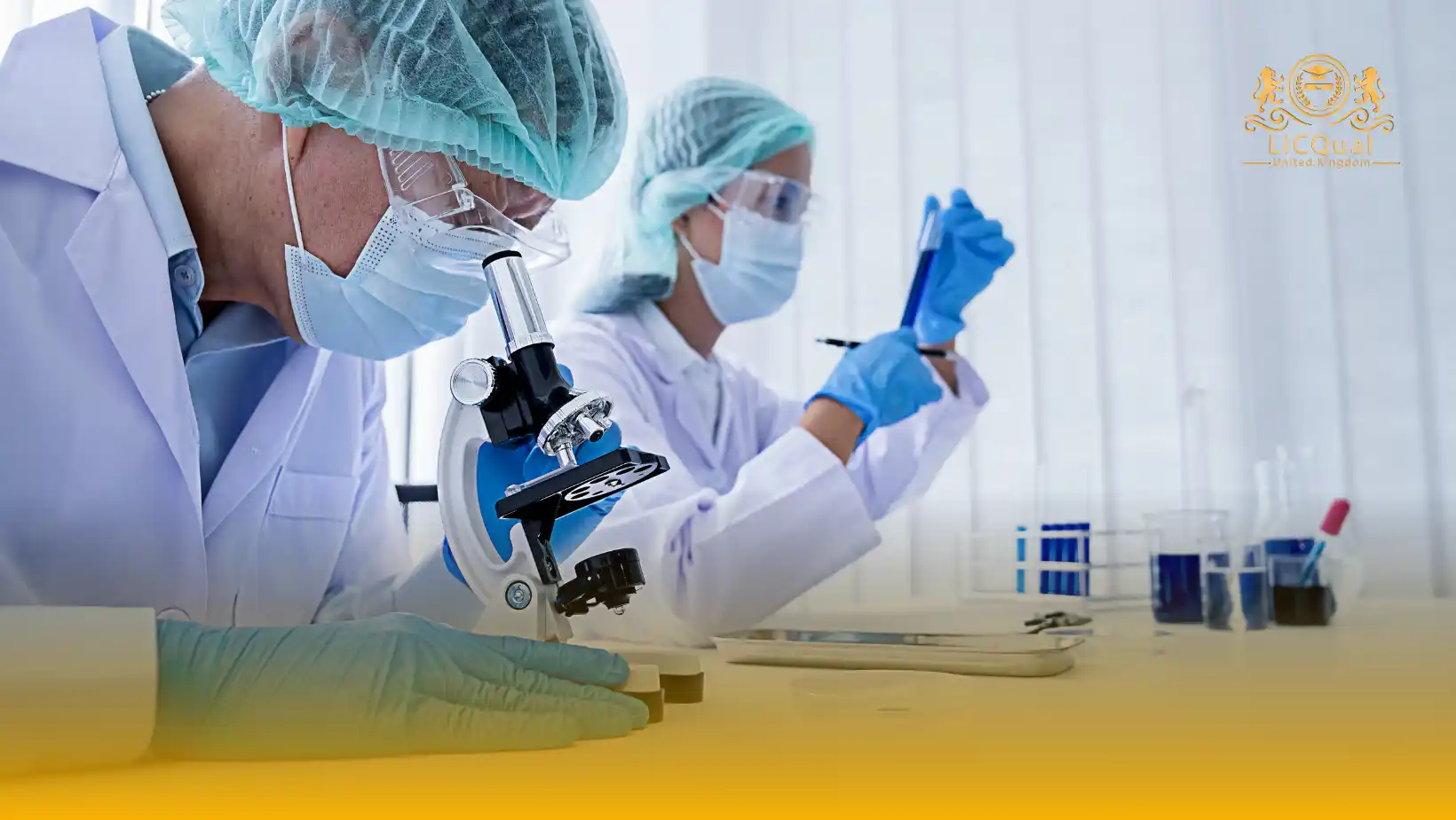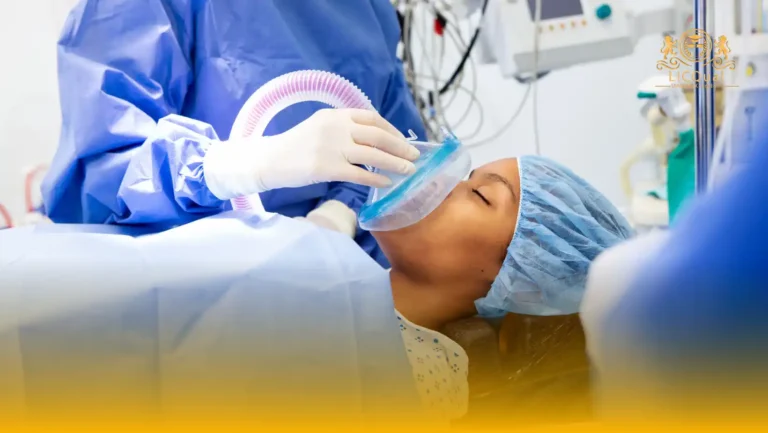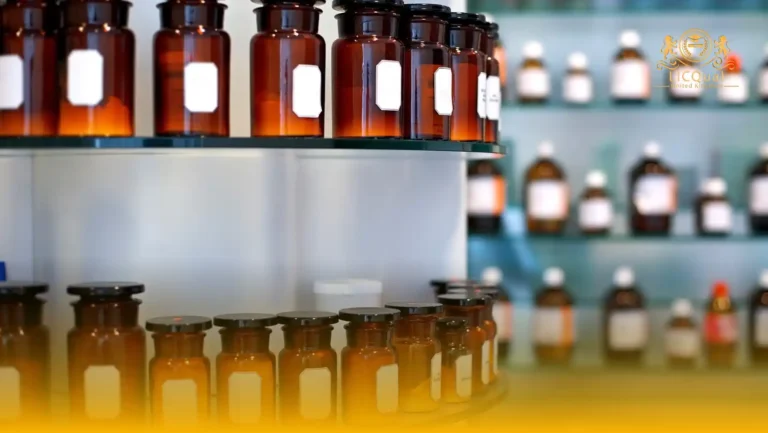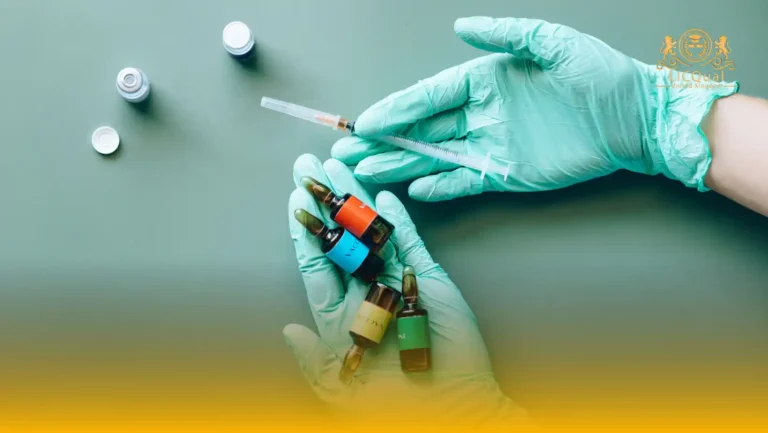The LICQual Level 3 Diploma in Clinical Pathology (Dip CP) is a specialised qualification designed for healthcare professionals who wish to strengthen their expertise in the study, diagnosis, and understanding of disease processes. This programme is not intended for fresh candidates but is aimed at experienced individuals seeking to expand their professional knowledge, advance their career opportunities, and enhance their Continuing Professional Development (CPD) within the field of pathology and laboratory medicine.
Clinical pathology plays a vital role in modern healthcare, providing critical insights into disease detection, prevention, and management. This diploma equips learners with advanced knowledge in areas such as haematology, microbiology, clinical biochemistry, and immunology, preparing them to contribute effectively to diagnostic services and clinical decision-making. Through structured study units, learners gain both theoretical understanding and applied skills aligned with international standards of clinical practice.
Centres delivering this qualification must ensure they have competent and qualified staff, as well as the necessary resources and materials to provide high-quality learning experiences. This includes access to laboratory settings, updated learning resources, and effective learner support systems to promote success.
By undertaking the LICQual Level 3 Diploma in Clinical Pathology, learners will not only improve their specialist knowledge but also build the confidence to apply advanced diagnostic and analytical techniques in real-world healthcare settings. This qualification is an excellent pathway for medical professionals seeking progression into more advanced roles in pathology, medical diagnostics, or laboratory sciences.
Course Overview
Qualification Title
LICQual Level 3 Diploma in Clinical Pathology (Dip CP)
Total Units
6
Total Credits
60
GLH
240
Qualification #
LICQ2200884
Qualification Specification
To enroll in the LICQual Level 3 Diploma in Clinical Pathology (Dip CP), applicants must meet the following criteria:
|
Qualification# |
Unit Title |
Credits |
GLH |
|---|---|---|---|
|
LICQ2200884-1 |
Fundamentals of Clinical Pathology |
10 |
40 |
|
LICQ2200884-2 |
Haematology and Blood Disorders |
10 |
40 |
|
LICQ2200884-3 |
Clinical Microbiology and Infectious Diseases |
10 |
40 |
|
LICQ2200884-4 |
Clinical Biochemistry and Laboratory Diagnostics |
10 |
40 |
|
LICQ2200884-5 |
Histopathology and Cytology |
10 |
40 |
|
LICQ2200884-6 |
Quality Assurance, Laboratory Safety and Ethical Practice in Pathology |
10 |
40 |
By the end of this course, learners will be able to:
Unit 1: Fundamentals of Clinical Pathology
- Understand the role and scope of clinical pathology in modern healthcare.
- Explain the principles of disease mechanisms at the cellular and systemic levels.
- Demonstrate knowledge of diagnostic tools and laboratory methods.
- Apply clinical pathology concepts to real-world patient case studies.
Unit 2: Haematology and Blood Disorders
- Identify normal and abnormal blood cell morphology.
- Analyse laboratory tests used in the diagnosis of blood disorders.
- Explain the pathophysiology of common haematological diseases.
- Evaluate the role of blood investigations in patient management.
Unit 3: Clinical Microbiology and Infectious Diseases
- Understand the principles of microbial growth, identification, and classification.
- Recognise the role of microbiology in diagnosing infectious diseases.
- Apply laboratory techniques for detecting bacterial, viral, fungal, and parasitic infections.
- Assess infection control measures and their importance in healthcare.
Unit 4: Clinical Biochemistry and Laboratory Diagnostics
- Explain the principles of biochemical testing in pathology.
- Interpret biochemical markers for common systemic diseases.
- Apply laboratory techniques to assess organ function and metabolic disorders.
- Evaluate the clinical significance of laboratory results in patient care.
Unit 5: Histopathology and Cytology
- Understand the principles of tissue preparation and microscopic examination.
- Identify pathological changes at the cellular and tissue level.
- Apply histological and cytological methods in disease diagnosis.
- Evaluate the importance of histopathology in oncology and chronic disease detection.
Unit 6: Quality Assurance, Laboratory Safety and Ethical Practice in Pathology
- Understand quality assurance systems in clinical laboratories.
- Apply international standards of laboratory safety and risk management.
- Demonstrate knowledge of ethical and legal considerations in pathology.
- Evaluate the importance of accuracy, reliability, and confidentiality in laboratory practice.
The LICQual Level 3 Diploma in Clinical Pathology (Dip CP) is designed for healthcare professionals, laboratory staff, and students who want to build expertise in pathology, diagnostics, and laboratory medicine. This accredited clinical pathology diploma is ideal for those seeking CPD accreditation, career advancement, and practical skills in hematology, microbiology, immunology, and biochemistry. Whether you are already working in healthcare or planning to specialize in laboratory sciences, this Level 3 clinical pathology qualification equips you with the knowledge and confidence to make a meaningful impact in modern healthcare.
1. Doctors and Medical Practitioners
- Strengthen expertise in disease diagnosis and pathology interpretation
- Gain advanced skills in hematology, microbiology, and immunology
- Enhance qualifications with an accredited clinical pathology diploma
- Apply evidence-based practices in hospitals and diagnostic centers
- Earn CPD points to support ongoing professional development
2. Laboratory Technicians and Pathology Staff
- Build confidence in specimen collection and laboratory testing
- Learn quality control and result interpretation techniques
- Strengthen qualifications with a CPD accredited clinical pathology course
- Improve ability to support doctors and healthcare teams
- Gain practical skills for both hospital and independent labs
3. Medical and Healthcare Students
- Develop a strong foundation in clinical pathology and laboratory medicine
- Gain a competitive edge for future healthcare and research careers
- Access flexible online learning while continuing academic studies
- Learn practical approaches to diagnostics and disease management
- Earn a recognized Level 3 clinical pathology qualification early in your career
4. Public Health and Community Health Practitioners
- Strengthen expertise in disease prevention and diagnostic strategies
- Learn to integrate pathology into public health programs
- Contribute to national and global health initiatives
- Build qualifications for roles in NGOs and government agencies
- Apply pathology principles to population-level health challenges
5. Research Scholars and Biomedical Scientists
- Enhance expertise in laboratory-based research and diagnostics
- Learn advanced methods in biochemistry and immunology
- Strengthen qualifications for academic and research careers
- Gain skills to contribute to medical research and innovation
- Build a pathway toward higher-level pathology specializations
6. NGO and Humanitarian Workers
- Prepare for healthcare delivery in underserved or crisis regions
- Gain practical skills for managing pathology services in emergencies
- Strengthen qualifications for roles in international aid organizations
- Learn to implement diagnostic measures in resource-limited settings
- Contribute to global health and humanitarian resilience initiatives
7. Career Changers and Lifelong Learners
- Explore opportunities in healthcare, pathology, and laboratory sciences
- Gain an affordable and accessible qualification in clinical pathology
- Build transferable skills for roles in education, research, or NGOs
- Learn at your own pace with flexible online study options
- Strengthen your CV with a recognized diploma in clinical pathology
To successfully deliver the LICQual Level 3 Diploma in Clinical Pathology, centres must ensure they meet the following requirements to guarantee high-quality training, learner success, and compliance with international standards:
- Qualified and Experienced Staff
- Trainers and assessors must hold relevant academic and professional qualifications in clinical pathology, biomedical science, or laboratory medicine.
- Staff must have practical experience in diagnostic laboratory practices, pathology disciplines, and healthcare education.
- Adequate Learning Resources
- Centres must provide access to specialised pathology reference materials, textbooks, journals, and e-learning platforms.
- Availability of digital resources and updated case studies to enhance learner knowledge and practical understanding.
- Laboratory Facilities and Equipment
- Access to well-equipped laboratory environments that support practical training in pathology disciplines such as haematology, microbiology, histopathology, and biochemistry.
- Centres must ensure learners can engage with realistic laboratory practices and diagnostic tools.
- Robust Quality Assurance Systems
- Internal verification and quality assurance processes must be in place to maintain assessment integrity and compliance with awarding standards.
- Regular monitoring and evaluation of teaching staff, resources, and learner progress.
- Learner Support Services
- Centres must provide academic guidance, mentoring, and career development support to all learners.
- Support for learners with special educational needs and disabilities (SEND) to ensure inclusivity.
- Commitment to CPD
- Training staff must engage in Continuing Professional Development (CPD) to remain updated with the latest advancements in clinical pathology and laboratory medicine.
- Compliance with Health and Safety Standards
- Centres must comply with all health, safety, and ethical guidelines relevant to laboratory practices and medical education.
Assessment and Verification
All units within this qualification are subject to internal assessment by the approved centre and external verification by LICQual. The qualification follows a criterion-referenced assessment approach, ensuring that learners meet all specified learning outcomes.
To achieve a ‘Pass’ in any unit, learners must provide valid, sufficient, and authentic evidence demonstrating their attainment of all learning outcomes and compliance with the prescribed assessment criteria. The Assessor is responsible for evaluating the evidence and determining whether the learner has successfully met the required standards.
Assessors must maintain a clear and comprehensive audit trail, documenting the basis for their assessment decisions to ensure transparency, consistency, and compliance with quality assurance requirements.







